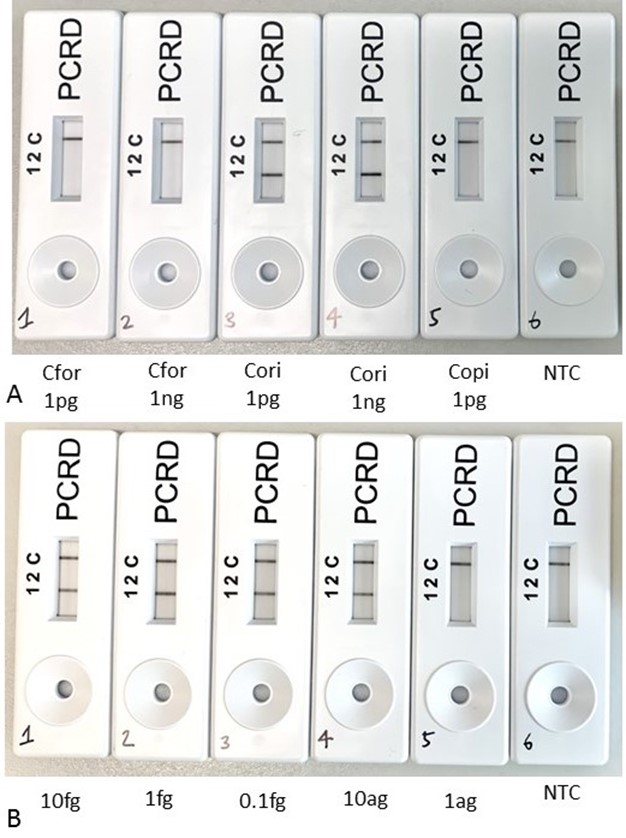New FRDC-funded research has seen the development of a first-of-its-kind mobile diagnostic tool, allowing Southern Bluefin Tuna (Thunnus maccoyii) farmers to quickly identify parasites in their stocks.
By Dempsey Ward
“Fast, simple and easy to use … what if we could take the principles of a pregnancy test but instead of detecting babies - we could detect parasites?” Dr Cecila Power
In 2020, Associate Professor Nathan Bott spoke to RMIT University about his ambition to develop a new diagnostic test for Southern Bluefin Tuna (SBT) farmers.
“We were hoping to develop a new test that would only require a mucus swab from the gill of a live fish to test for the presence of parasites,” Nathan said.
Three years later, his hopes have become a reality, with the FRDC-funded research (2018-170) delivering a mobile diagnostic tool for SBT farmers.
Parasitic blood flukes infecting SBT, Cardicola forsteri and Cardicola orientalis, are the number one health factor affecting the farmed tuna species and can be deadly if left untreated. It is important to note that this infection cannot be transferred to humans.
Postdoctoral Researcher at RMIT University, Dr Cecilia Power, was one of the project team members for the preliminary study FRDC Project 2017-241 ‘Understanding blood flukes infecting Southern Bluefin Tuna’, that identified the effectiveness of different health management strategies to treat blood flukes infecting farmed SBT.
Both traditional and molecular methods to test the effectiveness of the health management strategies were used for the project.
Cecilia says that although molecular methods (qPCR) were proven to be superior - they required time, specialised training and expensive equipment.
“Fast, simple and easy to use … what if we could take the principles of a pregnancy test but instead of detecting babies - we could detect parasites?”

Researchers at RMIT conducted a series of ‘rapid’ testing kits to help improve the sustainability of Southern Bluefin Tuna farmers stock in Port Lincoln.
The team tested multiple novel methods of finding presence of the parasites, but found that an RPA test, which works like a COVID-19 RAT test, combined the precision and effectiveness of molecular methods - with the speed and ease of traditional testing methods.
Cecilia also says this allows for a simple ‘yes or no’ answer for farmers to determine whether their fish is infected.
“The RPA combined everything we like about a microscope and a qPCR test into one - picking up infections much earlier, and much faster,” Cecilia said.
On-site surveying was conducted on all seven commercial SBT farms in Port Lincoln using a range of diagnostic methods, including the ‘rapid’ test. This allowed the project team to find out what factors influenced SBT parasitic infection, along with a holistic view into which Port Lincoln Tuna farmers currently experienced infections.
“Our partnership with the SBT farmers [in Port Lincoln] will continue, with students taking samples back to the lab, and actively monitoring the health of the tuna,” Cecilia said.
Cecilia says the RPA test technology could be applied to any pathogen or infection present in Aquaculture.
“This sort of technology is not just confined to blood flukes or SBT, it can be applied to a wide range of parasites affecting farmed fish species throughout the globe.”
The study is a partnership between RMIT University, Australian Southern Bluefin Tuna Industry Association Ltd, Port Lincoln Tuna Farmers and FRDC.
The final report is expected to be published later this year.
FRDC Projects:
- 2017-241: Understanding blood flukes infecting Southern Bluefin Tuna
- 2018-170: Development of diagnostic and surveillance techniques to promote modern Southern Bluefin Tuna health management
This relates to R&D Plan Outcomes 1 and 2





